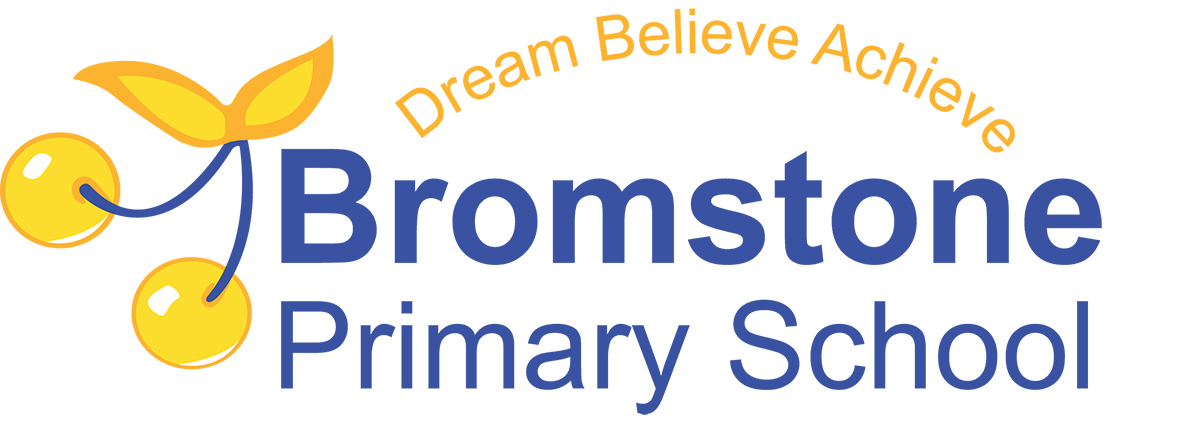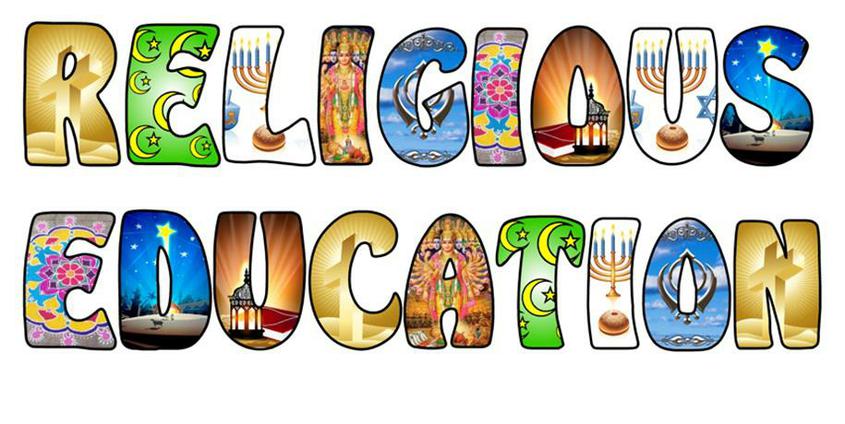
Bromstone Primary School
RE

At Bromstone we manage our coverage of Religious Education in 3 weekly blocks rather than in a lesson a week in this way we cover more than the recommended 1 hour a week.
We feel that this gives us the opportunities to delve deeper into the topics raised and also to have visits or visitors linked to the topic.
Below is the coverage expectations for the various key stages.
In Foundation
F1 Which stories are special and why?
This investigation enables pupils to become familiar with the idea that some books are holy books. Pupils learn stories from and about holy books, including stories about Jesus and Prophet Muhammad. Pupils are given opportunities to retell the stories in a variety of ways and look at how some religious stories are similar and how they differ. The investigation implements the principal aim of RE, which is to engage pupils in systematic enquiry into significant human questions which religion and worldviews address, so that they can develop the understanding and skills needed to appreciate and appraise varied responses to these questions, as well as develop responses of their own.
F2 Which people are special and why?
F3 What places are special and why?
F4 What times are special and why?
F5 Being special: where do we belong?
F6 What is special about our world?
KS1
1.1 How and why do we celebrate special times?
1.1 Who is a Christian…
1.2 Who is a Muslim…
1.3 Who is Jewish…
1.4 What can we learn from sacred books?
This investigation enables pupils to find out about sacred books from more than one religion. It clearly builds upon work from unit F1 (Which stories are special and why?). Pupils begin by recapping their work on special books and thinking about what makes a book ‘holy’. They then move onto looking at stories and teachings in holy books and finding out what these mean for believers. Pupils learn how different holy books are treated and that some stories appear in more than one book. You may choose to study the Bible and the Torah or the Bible and the Qur’an rather than looking at all 3 sacred books. The investigation implements the principal aim of RE, which is to engage pupils in systematic enquiry into significant human questions which religion and worldviews address, so that they can develop the understanding and skills needed to appreciate and appraise varied responses to these questions, as well as develop responses of their own.
1.5 What makes some places sacred?
1.7 What does it mean to belong to a faith community?
1.8 How should we care for others and the world?
LKS2 Years 3 & 4
L2.1 What do different people believe about God?
L2.2 Why is the Bible so important for Christians today?
This investigation enables pupils to learn in depth from different religious and spiritual ways of life about Christian scriptures – the Bible – exploring questions about what the Bible says and how the bible is used and valued in Christian communities today. The investigation implements the principal aim of RE, which is to engage pupils in systematic enquiry into significant human questions which religion and worldviews address, so that they can develop the understanding and skills needed to appreciate and appraise varied responses to these questions, as well as develop responses of their own.
L2.3 Why is Jesus inspiring to some people?
L2.4 Why do people pray?
L2.5 Why are festivals important?
L2.6 Why do some people think life is a journey?
L2.7 What does it mean to be a Christian…
L2.8 What does it mean to be a Hindu…
L2.9 What can we learn from religions about deciding right and wrong?
UKS2 Years 5 & 6
U2.1 Why do some people believe God exists?
U2.2 What would Jesus do?
U2.3 What do religions say to us when life gets hard?
U2.4 If God is everywhere why go to a place of worship?
This investigation enables pupils to learn in depth from different religious and spiritual ways of life about worship, drawing out more detail, history and diversity through focussing on places of worship. Pupils learn about the various purposes of a place of worship as well as how believers see these places. Pupils think about the idea of God’s presence on earth and in believers’ lives. Opportunities to debate are given, including of the key question, to offer pupils a chance to reflect for themselves on the value and purpose of worship in religion. The investigation implements the principal aim of RE, which is to engage pupils in systematic enquiry into significant human questions which religion and worldviews address, so that they can develop the understanding and skills needed to appreciate and appraise varied responses to these questions, as well as develop responses of their own.
U2.5 Is it better to express beliefs in art or charity?
U2.6 What does it mean to be a Muslim…
U2.7 What matters most to Christians and humanists? Completed.
U2.8 What difference does it make…?